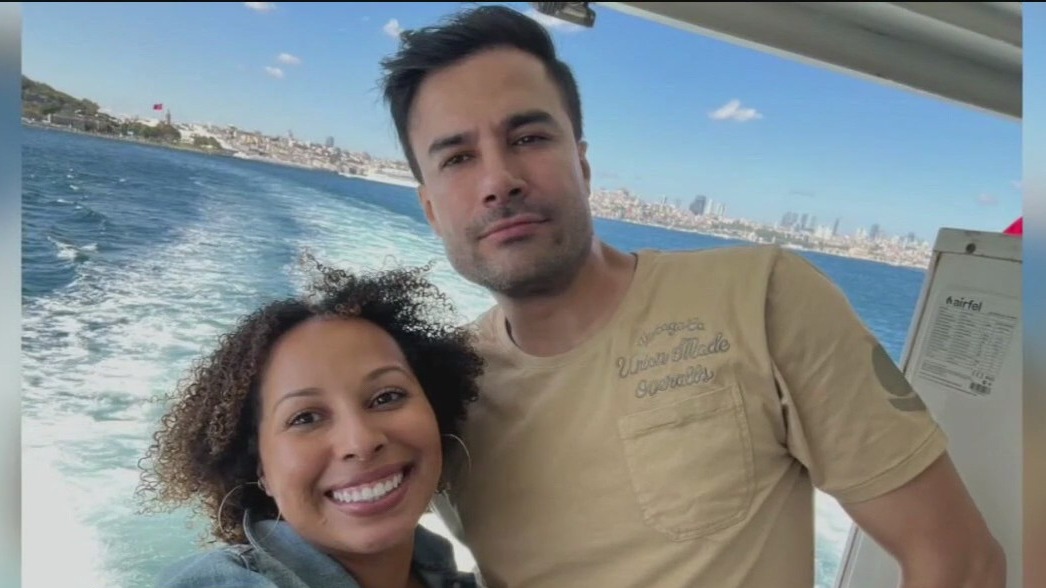Bay Area woman’s fiancé stuck in Iran amid conflict, visa delays

Vallejo woman’s fiancé stuck in Iran as visa stalls, conflict escalates
A Vallejo woman is anxiously awaiting the arrival of her fiancé, whose U.S. visa application has been stalled, due to President Trumps travel ban, as he now faces growing danger in Iran.
VALLEJO, Calif. - As a fragile ceasefire holds between Iran and Israel, a Bay Area woman is speaking out about the emotional toll of being separated from her fiancé, who remains stuck in Tehran amid ongoing violence and a visa application delay.
Christina Rogers, a Vallejo resident and graduate student studying social work, became engaged to Mostafa "Mosi" Rezazadeh in 2023, after being introduced by his cousin. They met in person, fell in love, and got engaged that September.
The couple planned to start a life together in the US.
Mosi applied for a K-1 visa, which allows the applicant to enter the country and marry an American citizen within 90 days.
He completed his visa interview the day before former President Donald Trump was elected in 2024, and was told to expect approval within two months.
That approval never came.
There has been no movement on his application, a delay Rogers attributes to Trump’s latest travel ban, which restricted immigration from several countries, including Iran, which has stalled or derailed thousands of immigration cases.
Love across borders
"He’s been hearing the bombs, he was impacted by that, and you never know what’s going to happen," Rogers said. "That’s something we did talk about today, where he feels safe right now, but anything can change, they’ve not gone 24 hours without bombs."
Rogers said Rezazadeh remains in Tehran, where he runs a small food manufacturing business and cares for his aging parents. They stay in daily contact via WhatsApp, though recent internet blackouts have made communication difficult.
She shared video Rezazadeh recorded outside his home showing evidence of nearby missile strikes.
"His greatest concern is when can he see me again, so we’re both on the page of, when can we be reunited and when will all this kind of blow over so we can get back to getting our life together," she said.
Rogers emphasized that while Rezazadeh is proud of his Iranian culture, he does not support the government. It is a distinction she says is true for many civilians.
"So there’s a lot of pride for his culture and for his country, but with that being said, is he proud of his government? Is he in support of the government? No," Rogers said. "And so there is definitely a separation between the nationals and the civilians and the government."
Despite the uncertainty, Rogers remains hopeful that she and Rezazadeh can reunite and move forward with their plans to marry, whether in San Francisco City Hall, Las Vegas, or another country.
"This is unchartered territory," she said. "There’s really no rule book, there’s not a lot of answers here."
She added that Rep. John Garamendi’s office has been helpful in this process, and has advocated on the couple’s behalf.
Rogers hopes the federal government will consider exemptions for cases like theirs, which were already in progress before the ban and the latest escalation in the Middle East.
Featured
Israel-Iran updates: Ceasefire shaky as Israel says Iran launched more missiles
A ceasefire between Israel and Iran appeared to be faltering Tuesday morning. Here's the latest between the two counties and the U.S. involvement.


